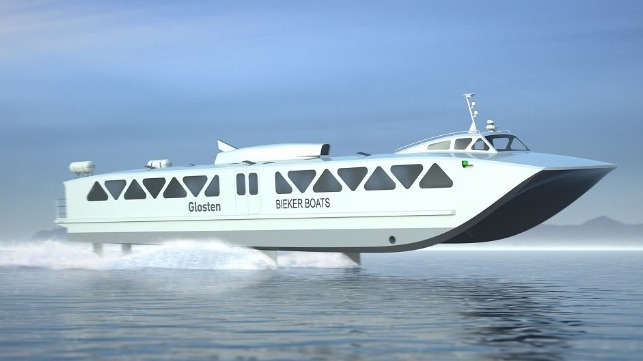Glosten: U.S. Needs Government Leadership on Low-Carbon Shipping

At a congressional hearing on maritime industry decarbonization last week, the president of naval architecture firm Glosten, Inc. called for a new strategic initiative to invest in green technology for the U.S. domestic fleet.
"Creating a carbon-free maritime industry is an unprecedented challenge that creates a unique opportunity for U.S. technology developers. If this is our goal, time is of the essence. We will soon lose to foreign competition that is better funded and better prepared to lead the maritime industry toward decarbonization," testified Morgan M. Fanberg, president of Glosten, at a hearing of the House Subcommittee on Coast Guard and Maritime. "We are at a point where we can either be late and adopt foreign technologies, or we can move quickly and lead the world."
U.S. technological competition could begin at home, Fanberg said, with new investments in the Jones Act fleet. With more than 3,600 vessels of 100 GT and up - tugs, ferries, OSVs, workboats and coastal merchant ships - the U.S. has one of the largest domestic fleets in the world. Under the right conditions, this fleet could be a natural market for U.S.-based low-carbon technological development.
Fanberg called for a new strategic initiative on maritime decarbonization, led by the Department of Energy and the Maritime Administration, to fund the R&D and infrastructure required for low-carbon investments. First and foremost, he recommended government investment in the infrastructure for electric vessel charging and zero-carbon fuel bunkering in port areas. The additional cost of new shoreside energy infrastructure is often challenging for ports and vessel operators to underwrite.
Second, he proposed a concerted public-private effort to start R&D pilot projects, bringing together academic researchers, industry partners and the maritime academies. He noted that Glosten's recent project with Bieker Boats on an electric, hydrofoil ferry design had received roughly $0.4 million in federal support, while a competing project in the UK (Artemis Technologies) received government backing totaling $45 million. In a similar example, a 2018 design for a hydrogen-powered research vessel by Glosten and Scripps is still awaiting federal funding, while the EU is providing $25 million towards the development of two hydrogen-powered ro/ro freight ferries for Wilhelmsen.
"The global maritime industry has not faced a more daunting challenge since vessels moved from sail power to steam. Action must be taken now to tackle the amount of scientific and engineering work required to move the industry to carbon-free in the next 25-30 years. We have the key resources ready to meet this challenge, but if we delay, we will watch as foreign countries develop future technologies in equipment, fuels, and infrastructure," warned Fanberg. "We need government to partner with academia and private industry to develop, deploy, and demonstrate decarbonization technologies to achieve emission targets and position the United States as the global maritime leader."
